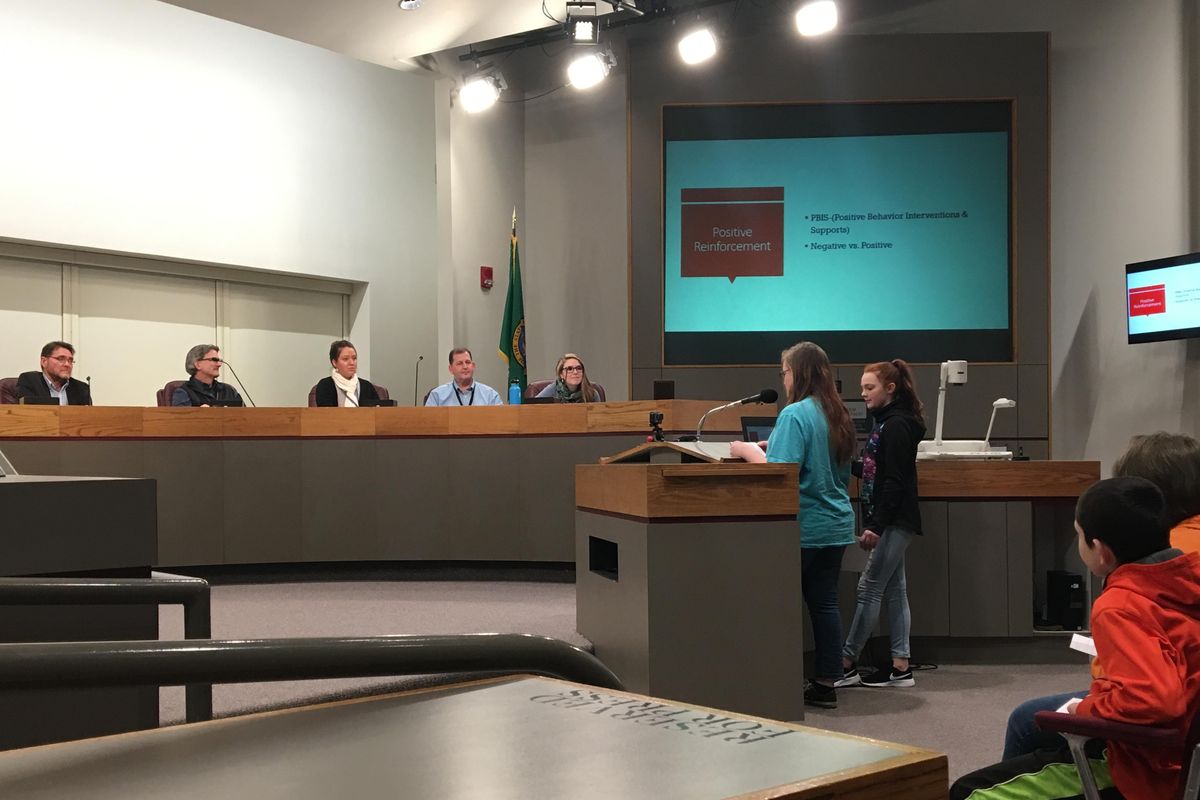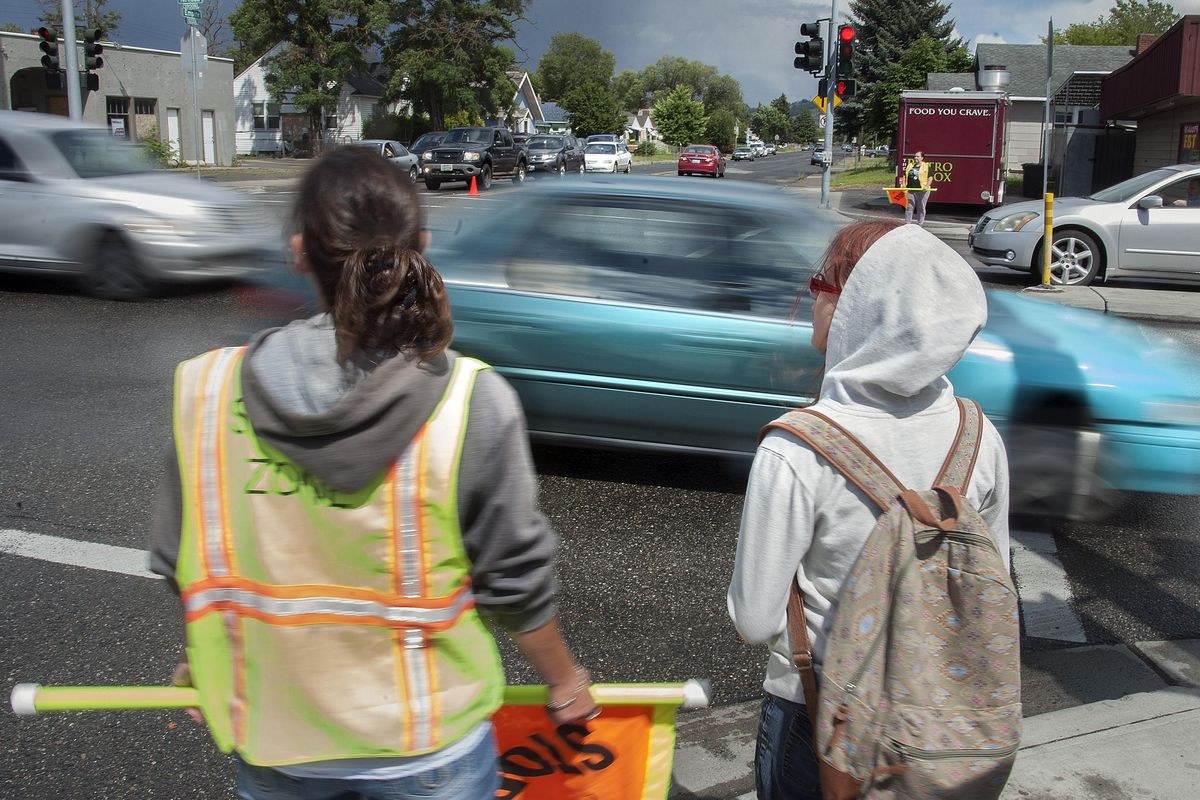Regal Elementary students suggest alternative use for school zone cameras to capture speeders
Regal Elementary School students Cheyenne Richey, left, and Erica Stilson, right, present a proposal on school zone cameras to Spokane City councilmembers and other city officials at City Hall on Thursday, Feb. 15, 2018. Richey and Stilson are members of Aron Watts’ sixth grade class, who were finishing up a class project aimed at promoting safety for students near schools. (Kip Hill / The Spokesman-Review)
Students from Regal Elementary School offered a kinder, gentler way to get Spokane school zone speeders to slow down in a presentation at City Hall this week.
Spokane City Councilman Mike Fagan and Councilwoman Kate Burke looked on as members of Aron Watts’ sixth-grade class on Thursday afternoon pitched the idea of rewarding good drivers caught on video with gift cards, rather than just issuing speeders a ticket that can cost several hundred dollars.
“It was shocking to us, that with a camera system in place, the number of tickets were so high,” Watts told Fagan and Burke, who represent the northeast portion of town that includes Regal.
The proposal, called Project Roadblock, was the final project of a weekslong service-learning assignment in Watts’ class. Eleven students worked together to research potential positive reinforcement tactics as an addition to the system Spokane instituted in 2015, including polling staff members at Spokane schools about whether they’d be more swayed by a monetary penalty or a reward for driving at the posted 20 mph limit in speed zones.
Students offered their observations, read from clutched index cards at the same lectern where the public addresses the full council on Monday evenings. D’ron Pratt, one of Watts’ students, told Fagan and Burke his class had met with Spokane police Officer Craig Bulkley, who oversees the city’s photo red and school zone programs, and learned about the extent of the speeding problem.
“At first, I was like, ‘Oh gosh, I’m going to really do something bad,’ ” Pratt said after he’d finished addressing the two council members. “But afterwards, I don’t know. It felt good.”
Watts said he was proud of his class for overcoming their public speaking fears.
“It was fun for me to see. They were super nervous,” Watts said. “It was great to see them come off and do it, and feel good about it.”
The students were driven to action by media reports indicating how widespread the speeding problem had become and the city’s decision to introduce two new speeding cameras this year near Ridgeview and Willard elementary schools in north-central Spokane, Watts said. According to the most recent reports by Spokane police, 329 speeders were ticketed at two cameras near Finch and Longfellow elementary schools between Nov. 15 and Dec. 15, up from 269 tickets issued during the same period in 2016.
Fagan, a critic of the cameras who frequently cites costs when breaking with his council colleagues, urged the roughly 50 sixth-graders who attended Thursday’s presentation in support of Watts’ class to consider another option for positive reinforcement that wouldn’t cost much money. Fagan suggested they wave signs in front of their school, before and after classes, thanking motorists for obeying the speed limit.
“I think that would really put you guys out there, make you very, very visible, with a wonderful message,” Fagan said.
Students suggested that the fines collected from ticketed drivers could be used to buy gift cards for good behavior. That money is currently being used by the city, by resolution, to fund sidewalk and crosswalk repair projects around town. Some of the money is also being used to pay for four new neighborhood resource officers in the Spokane Police Department.
Burke, the city’s newest council member, who hasn’t yet voted on any proposals concerning the traffic cameras, urged the class to consider taking their message to the full council, though there were some shy protests from the crowd.
“You can reach all of the citizens that watch it, and it’d be a great place for you guys to come and present to everybody,” Burke said.
After consulting with his class Thursday afternoon, Watts said they’d likely take Burke up on her offer.
“In two weeks, we’d come back to the City Council,” Watts said, the delay due to the Presidents Day holiday. “That may be too soon for us. We’ll see.”

